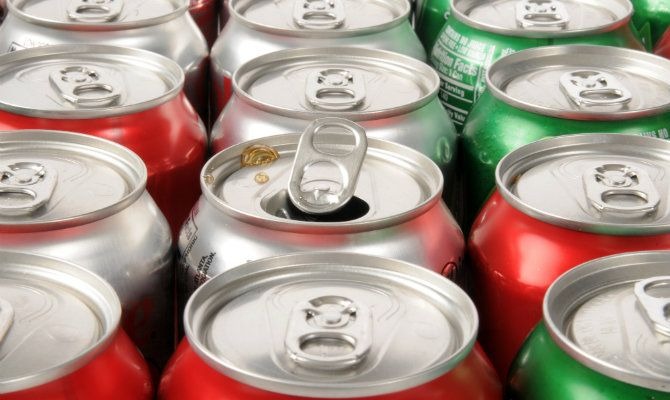Stop Making Excuses: Diet Soda Is Still Bad For You
After a long, tough battle — Americans are finally starting to realize that drinking soda is bad for your health. No, scratch that — drinking soda is borderline as bad as smoking a cigarette. Though these drinks taste as good as candy, they're full of chemicals, calories, and loads of sugar.
So, what's an alternative to drinking the real thing? For those of you who are crazy for carbonated beverages and refuse to give it up, your first thought may be to swap out regular soda for the diet alternative. It has relatively no calories, a lower sugar count, and it tastes just as good — so what's the big deal? We're not here to burst your bubble, but diet soda is not a healthier alternative to normal soda. In fact, some go as far to claiming it's even worse.
"Diet soda is no better than regular soda," according to Dr. Suzanne Steinbaum, a cardiologist with Lenox Hill Hospital in New York City. "The chemicals in it to lead to the metabolic syndrome! No reason to add this one to your diet. A truly unhealthy choice."
Metabolic syndrome in a can? No thanks. So, what is it exactly that's so bad about diet soda? The biggest red flag is all of the artificial sugars they contain. Yes, there are fewer calories and hardly any "real sugar," but that doesn't mean it's better for you.
According to Santa Monica OB/GYN Sheryl Ross, aspartame has been linked to headaches, dizziness, mood swings, digestive problems, and even cancer.
If you're looking at nothing but the nutrition label, a diet soda looks like a dream. Zero calories, grams of fat, and carbs — how can that be bad? Don't let the labels fool you, because if you're looking to sip on some soda, you should probably be looking at the ingredients instead.
For example the ingredients in a can of Diet Coke are: Carbonated water, caramel color, aspartame, phosphoric acid, potassium benzoate, natural flavors, citric acid, and caffeine.
Do you even know what phosphoric is? Don't worry, most people don't. Phosphoric acid is a colorless crystal that is extracted from rocks with sulfuric acid. In other words, it's an acid that can form toxic fumes when it comes on contact other chemicals, including the ones that are in your good old can of pop!
A rule of thumb when looking at ingredients is, if it's not natural or you can't pronounce it, you should probably stay away. That being said, diet soda doesn't pass the test.
The accompanying slideshow is provided by Jess Novak. Additional reporting by Lauren Gordon.
